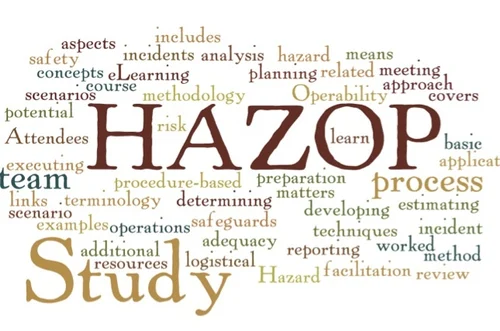How to Write an Impressive MBA Assignment: A Step-by-Step Guide

Writing an MBA assignment requires a combination of analytical skills, structured thinking, and professional presentation. Business school assignments are designed to test your understanding of theoretical concepts, critical analysis, and real-world application. This guide provides a structured approach to writing an effective MBA assignment with clarity and depth.
Understanding the Assignment Requirements
Before starting an MBA assignment, it is crucial to understand what is expected. Each assignment comes with specific instructions regarding the topic, formatting style, word count, and referencing guidelines. Here’s how to begin:
- Carefully read the assignment brief and identify key questions.
- Highlight the marking criteria to understand how your work will be assessed.
- Research the topic to build a foundational understanding before writing.
A well-structured plan ensures that you stay on track and meet all requirements.
Conducting In-Depth Research
A strong MBA assignment relies on thorough research from credible sources. Research helps in forming well-supported arguments and critical insights. To conduct effective research:
- Use academic journals, business reports, and case studies.
- Refer to credible sources such as Harvard Business Review, McKinsey Reports, and industry white papers.
- Take notes and organize research findings for easy reference.
By relying on authoritative sources, you demonstrate a well-informed perspective in your assignment.
Structuring Your MBA Assignment
A well-structured MBA assignment improves readability and ensures logical flow. Follow this standard structure:
1. Introduction
- Provide background information on the topic.
- Define the scope and objectives of the assignment.
- Outline key arguments that will be discussed.
2. Literature Review
- Summarize relevant theories and concepts.
- Compare and contrast perspectives from different sources.
- Identify research gaps or contradictions in existing studies.
3. Methodology (if applicable)
- Explain the approach taken to analyze data.
- Describe research methods such as qualitative or quantitative analysis.
- Justify why the chosen methodology is appropriate.
4. Analysis and Discussion
- Present arguments with supporting evidence.
- Use data, charts, and case studies for analysis.
- Critically evaluate theories in relation to real-world business practices.
5. Conclusion and Recommendations
- Summarize key findings and their implications.
- Provide actionable recommendations based on the analysis.
- Highlight areas for future research or improvement.
Maintaining this structure ensures clarity and logical progression.
Developing a Strong Argument
An effective MBA assignment presents well-supported arguments rather than mere opinions. To strengthen your argument:
- Use data and real-life examples to support claims.
- Reference business models and frameworks such as Porter’s Five Forces or SWOT Analysis.
- Compare different perspectives to show a balanced understanding.
Strong arguments increase the credibility of your assignment.
Writing with Clarity and Precision
MBA assignments require clear, professional, and concise writing. Follow these writing principles:
- Use formal and objective language.
- Avoid jargon and overly complex sentences.
- Maintain a logical flow between paragraphs.
Proofreading and editing your assignment before submission enhances clarity and readability.
Proper Referencing and Citation
Academic integrity is essential in MBA assignments. Citing sources correctly prevents plagiarism and strengthens credibility. Follow these citation tips:
- Use a consistent referencing style (Harvard, APA, or Chicago as per guidelines).
- Cite all external sources used in your research.
- Provide a well-organized bibliography or reference list.
Proper citation demonstrates professionalism and adherence to academic standards.
Time Management for Assignments
Meeting deadlines is crucial in an MBA program. Effective time management ensures quality work without last-minute stress. Follow these steps:
- Break down the assignment into manageable sections.
- Set specific deadlines for each stage (research, writing, editing).
- Allocate buffer time for revisions and proofreading.
By managing time wisely, you can submit a well-prepared and polished assignment.
Avoiding Common Mistakes
MBA students often make mistakes that can impact their grades. Here are some pitfalls to avoid:
- Lack of focus: Stay on topic and avoid unnecessary details.
- Weak thesis statement: Ensure a strong and clear central argument.
- Poor organization: Follow a logical structure with headings and subheadings.
- Ignoring formatting rules: Adhere to word count, citation style, and formatting guidelines.
Avoiding these mistakes enhances the overall effectiveness of your work.
Final Review and Submission
Before submitting your MBA assignment, conduct a final review:
- Check for grammatical and spelling errors.
- Ensure all references are correctly cited.
- Verify if all assignment requirements are met.
A well-polished assignment leaves a lasting impression and improves overall grades.
Seeking Assistance for MBA Assignments
If you find yourself struggling with complex MBA assignments, online academic assistance can be helpful. Many students opt for professional guidance when facing time constraints or challenging topics. If you need help, you can Do My MBA Assignment Online to ensure high-quality submissions.
Similarly, if you require support with in-depth research work, professional Dissertation Help Online in UK services can offer expert guidance tailored to your academic requirements.
Conclusion
Writing an impressive MBA assignment requires a structured approach, critical analysis, and effective presentation. By following these step-by-step guidelines, students can create well-researched and compelling assignments that meet academic standards. Understanding assignment requirements, conducting thorough research, presenting strong arguments, and ensuring clarity in writing are key factors for success. Additionally, proper citation, time management, and avoiding common mistakes contribute to higher grades and improved academic performance. With consistent practice and effort, mastering the art of writing MBA assignments becomes achievable.







